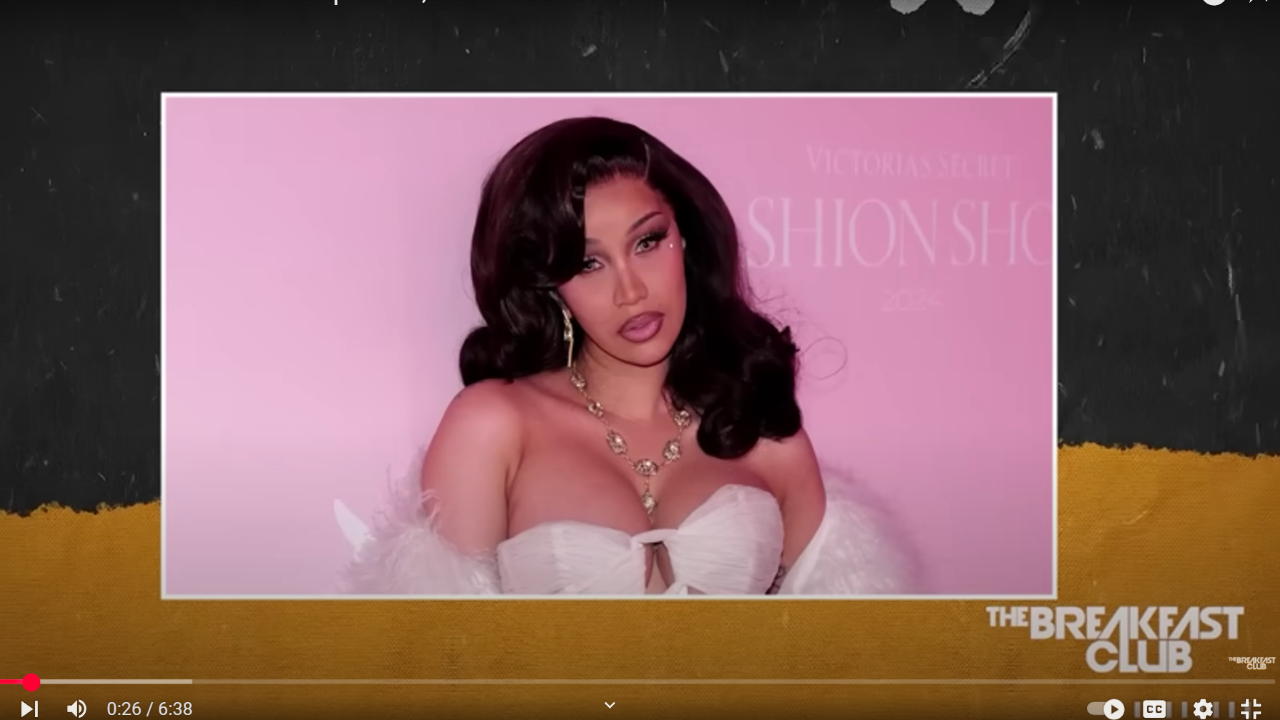CARDI B clears the air as seen on The Breakfast Club

Someone recently brought to my attention a clip from The Breakfast Club - https://www.youtube.com/watch?v=GtF9btughc0 where Cardi B addresses trolls commenting on her personal life, what some may call "clearing the air."
While it may seem amusing or even profitable to lean into the "Am I the drama?" persona, I question the strategy behind such a response. Though I would never advise clients to communicate in a way that feels inauthentic, her approach could have been far more impactful.
Equally important is the long-term effect on the young people in her orbit. This kind of engagement fosters a toxic environment, with potentially damaging consequences. Let’s use this interview as a teachable moment: when it comes to online discourse, we must be intentional. The digital space may thrive on reactivity, but the outcomes can cause lasting harm. #AmITheDrama
I just wanted to give context to the imforamtion I shared. Because she is not the first to employ this tactic. Public figures responding to criticism, whether through humour, deflection, or confrontation isn’t new. In the 19th century, politicians and artists used newspapers and pamphlets to clap back at detractors, often with wit or venom.
In the 1990s and 2000s, celebrities like Madonna and Eminem turned media scrutiny into part of their brand, using controversy to fuel their relevance. Cardi B’s approach follows this tradition, but with a key difference: social media accelerates and amplifies every exchange, making the stakes higher.
Long-term impact: normalisation of toxicity. When high-profile figures engage in public feuds, it reinforces the idea that hostility is an acceptable (or even expected) form of communication. Younger audiences, especially, may mimic this behaviour.
Brand erosion, while clapbacks can generate short-term engagement, they risk overshadowing talent or message. Over time, the public may focus more on the drama than the work.
Psychological toll, constant reactivity can be mentally exhausting, both for the celebrity and their followers. Studies show that prolonged exposure to online conflict increases anxiety and decreases empathy.
There are other ways of handling this. Instead of engaging directly with trolls, redirecting the conversation towards empowerment, humour (without malice), or simply ignoring negativity can yield better long-term results. The digital space may be reactive, but intentional communication fosters lasting influence.
Cardi and many others like her, including entrepreneurs, content creators and parents of content creators need help. SWIPE covers topics like this and provide solutions on how to manage them. https://www.marketingwithlovedigital.co.uk/swipe-landing-page

